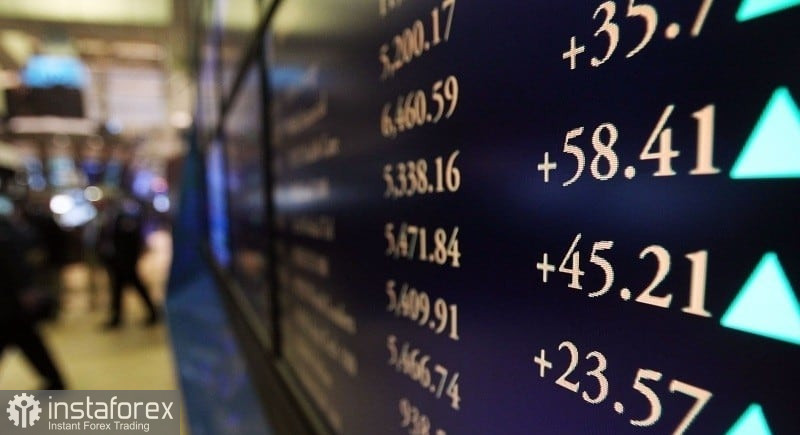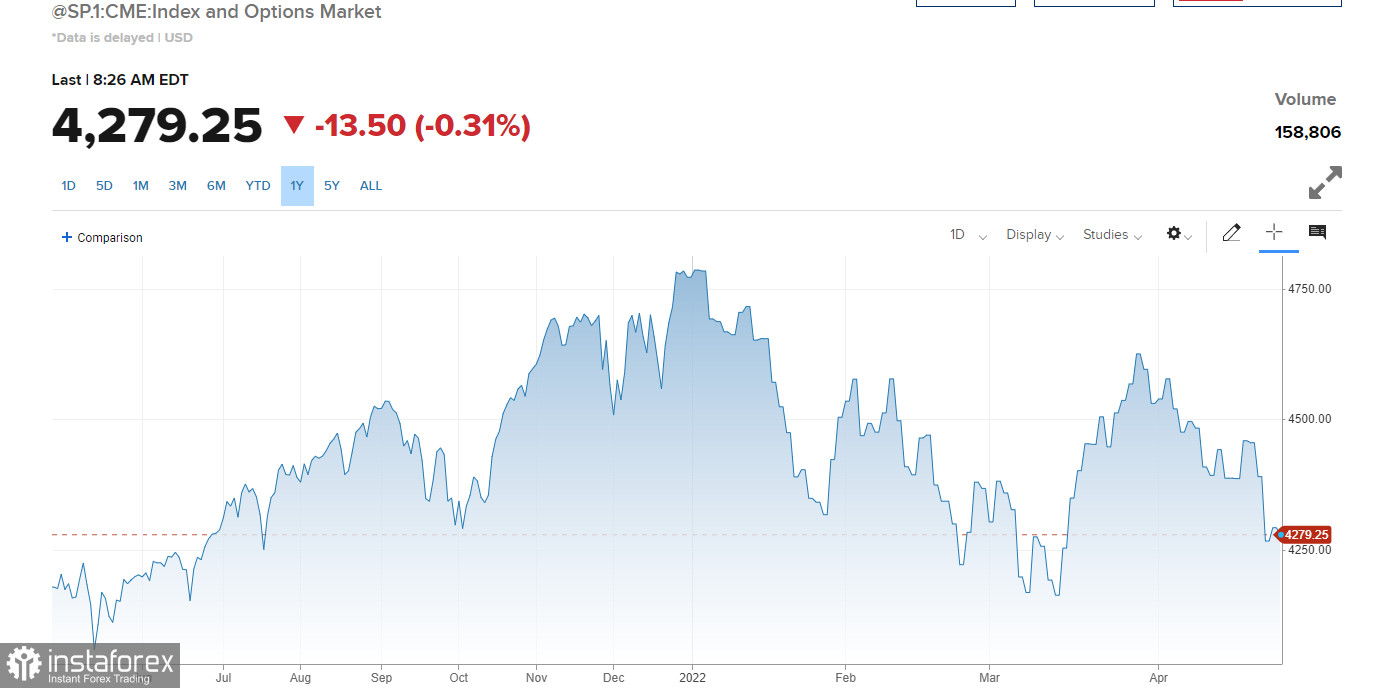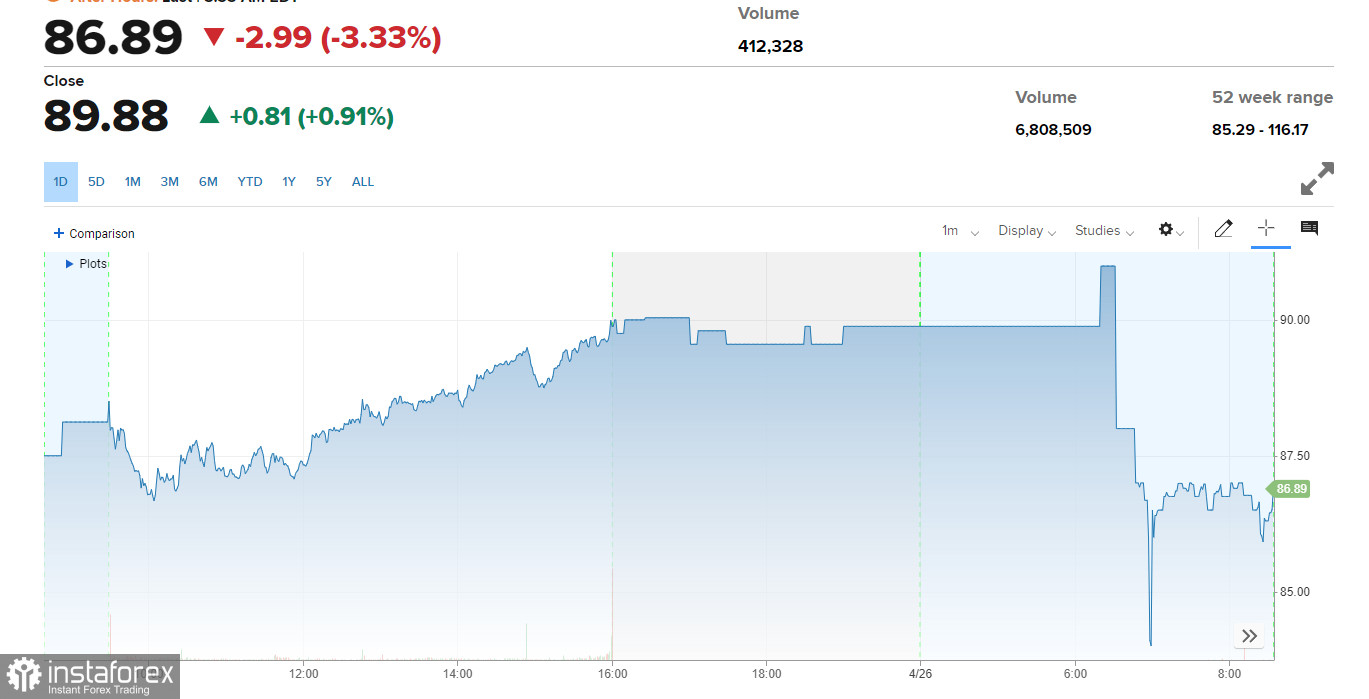US stock index futures slightly declined on Tuesday after showing an attempt to find a bottom on Monday and bouncing upward in hopes that April's sell-off is gradually coming to an end. Dow Jones Industrial Average futures dropped by about 140 points or 0.4%. S&P 500 futures plunged by about 0.4% and Nasdaq 100 futures decreased by 0.4%.

Yesterday, the Dow Jones index gained more than 200 points. The sharp market reversal sent the Nasdaq Composite and the S&P 500 up by 1.3% and 0.6% respectively. Indeed, the reversal is quite impressive, but it is unlikely to be the end of the market decline seen throughout April.
Falling US government debt yields led to a slight strengthening of the technology sector. In particular, companies such as Microsoft, Alphabet, and Meta Platforms increased. Twitter also jumped after its board accepted an offer from Tesla CEO Elon Musk. Musk is set to become Twitter's next owner, paying about $44 billion for it. Now users are wondering how he will fulfill his promise to develop new features by opening his algorithm to the public. Musk also recently made the announcement that he planned to make the most honest social network with free speech and investors fear these changes. Some experts who have spent years studying content moderation and researching Twitter have expressed doubt that Musk knows exactly what he is going to do.
The upward market correction also points to the acceptance of an interest rate hike by the Federal Reserve as early as May this year, as no one else will talk about it until the meeting. Usually, the committee maintains a silent mode before the meeting so investors can cool down their concerns. That's what will happen this time, too. The severely oversold market relative to this year's opening levels makes it attractive, counting on a smoother landing of the economy after more than two years of central bank stimulus.
As for economic data, investors are waiting for fresh data on new home sales and consumer confidence. A major divergence from the figures will lead to a spike in volatility. Good readings, on the other hand, are likely to strengthen markets.

Premarket
PepsiCo, the food and beverage giant, fell in premarket trading, though the company reported higher profits as consumers paid more for some of the company's key brands.
General Electric shares fell by 3.5% despite beating forecasts in its quarterly report. The company reiterated its previous full-year earnings forecast but said it saw challenges related to inflation and supply chain issues.
3M stock was flat at the premarket after reporting quarterly earnings that beat estimates. The company reported revenue of $8.83 billion, compared with analysts' expectations of $8.74 billion.

As for the technical picture of the S&P 500
Bulls managed to reach above $4,265 yesterday, but that's all for now. All they need now is to hold the price above this level. Only if the price fixes above this level, it may reverse the bearish sentiment, observed since early April. However, it's too early to talk about the bull market. A consolidation above $4,265 opens an opportunity for a return to $4,319 and a renewal of $4,376. In case of return of pessimism, which is obvious - nothing good happens apart from corporate reports, as well as in case of weak statistics on consumer confidence indicator in the United States, bulls will have to protect $4,265. If the trading instrument falls below this level, it will quickly reach the low of $4,216. If you miss this level, it is better to postpone opening longs until the index reaches the lows of $4,162 and $4,113.
 English
English 
 Русский
Русский Bahasa Indonesia
Bahasa Indonesia Bahasa Malay
Bahasa Malay ไทย
ไทย Español
Español Deutsch
Deutsch Български
Български Français
Français Tiếng Việt
Tiếng Việt 中文
中文 বাংলা
বাংলা हिन्दी
हिन्दी Čeština
Čeština Українська
Українська Română
Română

